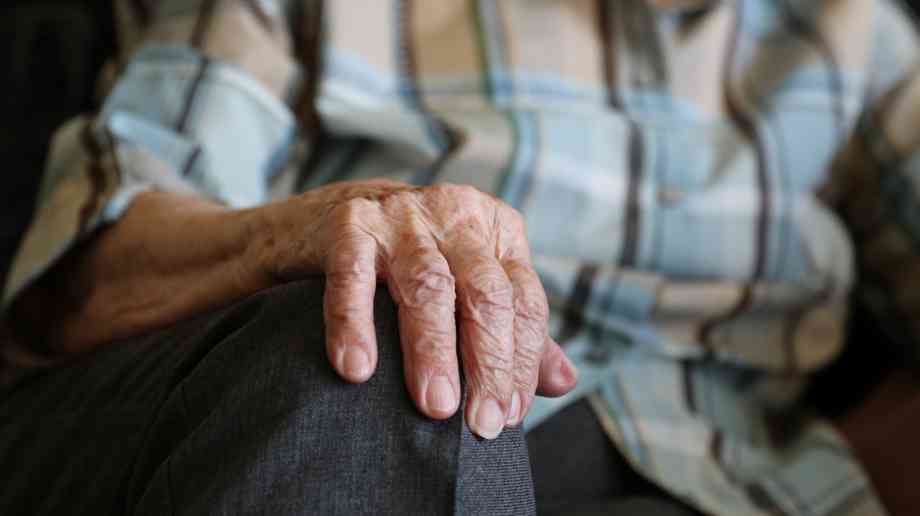Sue Robb of 4Children talks to Julie Laughton and Alison Britton from the Department for Education about the role of childminders in delivering the 30 hours free entitlement.
Older people missing out on ‘talking therapies’

People aged 65 and over make up just six per cent of NHS talking therapy patients in England, suggesting a need for more options and support for those experiencing mental health issues in later life.
Older people’s charity Independent Age has published a new Minds that matter report, in which they argue that the six per cent figure is too low given the age profile of the population – with 18 per cent aged over 65 - and the prevalence of mental health conditions in the community.
Access to talking therapies is even more essential during the coronavirus pandemic, with national statistics showing that people in later life are facing increased anxiety, depression and experiencing complicated grief as a result of bereavement during this period.
Independent Age found that between March and July this year, up to 98,000 older people experienced a partner bereavement – almost one and a half times as many as in a typical year.
Talking therapies, which include counselling, cognitive behavioural therapy (CBT) and guided self-help, are available through NHS England’s Improving Access to Psychological Therapies (IAPT) programme to treat issues such as depression and anxiety. People are often referred to these services by their GP.
Polling commissioned by Independent Age for the Minds that matter report showed that nearly half of people in this age group were also not aware of talking therapies. The report notes that despite the low rates of IAPT referral and low levels of awareness, people in later life often respond well to this support. Data from the programme for 2019-20 shows that people aged 65+ had an overall recovery rate of 64 per cent, compared to 50 per cent for people aged 18-64.
Given the high number of older people likely to be experiencing complicated grief due to bereavement during the coronavirus pandemic, and the increased experiences of anxiety or low mood, Independent Age is urging the government to ensure people in later life are signposted to the treatment options available and supported to manage their mental health.
Deborah Alsina, chief executive of Independent Age, said: “Now, more than ever, it’s critical that we take the mental health of people aged 65+ seriously. Even prior to Covid-19, people in later life regularly had to cope without their mental health needs being met, with 10 per cent of people aged over 65 saying they experience significant anxiety or low mood frequently or all the time.
“Covid-19 has brought extra challenges around bereavement, but we’ve also seen an increase in mental health problems such as depression and anxiety – in fact, ONS statistics show that rates of depression have doubled for people aged over 70. This is an urgent problem. Conditions like depression and anxiety can affect people at any age – and people of all ages can be treated and recover. It’s vital that NHS England takes a multi-faceted approach to improving older people’s access to mental health services. We want them to review the barriers to accessing therapy, share best practice where it’s working well, and use targeted messaging to ensure people are aware of what services exist and how they can help.”
Ian Hudspeth, chairman of the Local Government Association’s Community Wellbeing Board, said: “Councils play a crucial role in improving and maintaining their residents’ mental health and wellbeing across all ages, including for older people. This includes through adult and children’s social care, suicide prevention and helping unpaid carers and new parents, alongside providing safe access to parks and green spaces, youth services, children’s centres and expanding public libraries’ online offer.
“We need a new national focus on helping everyone stay mentally well, including those affected by Covid-19, backed-up by funding for councils to spend with the voluntary and community sector on meeting local mental wellbeing needs. This should include a shift in focus and funding away from simply treating mental ill-health and towards a locally-led approach to promoting people’s mental well-being throughout their lives. The upcoming Spending Review should be used to provide ongoing funding for councils to invest in effective mental health services and support to meet existing, new and unmet demand caused by the pandemic.”
Company Focus
Just Lanyards is a subsidiary name of Gifts 2 Impress Limited, who have been trading for over 25 years, we therefore pride ourselves in having endless experience covering all aspects of the promotional merchandise industry.
Event Diary
UKREiiF has quickly become a must-attend in the industry calendar for Government departments and local authorities.
The multi-award-winning UK Construction Week (UKCW), is the UK’s biggest trade event for the built environment that connects the whole supply chain to be the catalyst for growth and positive change in the industry.
Supplier Profiles
Geo Energy
At GeoEnergy Design, we're on a mission to disrupt the traditional way heating and cooling ha
Latest Features
Professor Harith Alani, director of the Knowledge Management Institute at the Open University explains how AI can be used for good and bad.
Alex Lawrence, head of health & social care, techUK sets out techUK’s Five Point Plan for CareTech.

















